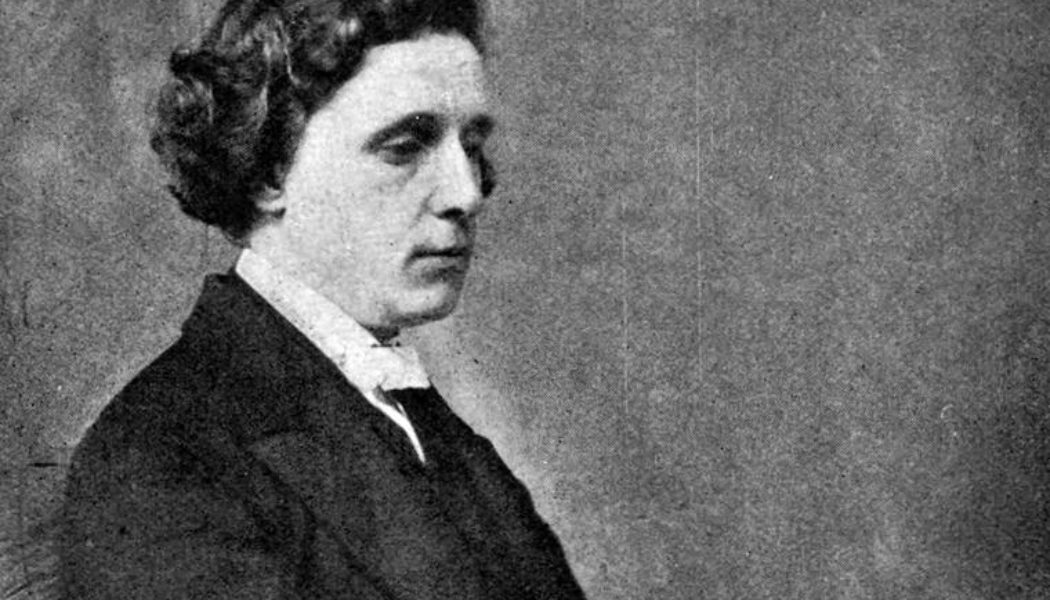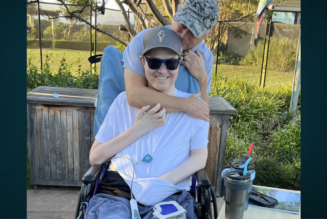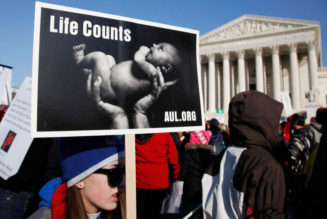
COMMENTARY: Even friends need rules for talking to each other, and his ‘Eight or Nine Wise Words About Letter-Writing’ are a good place to start.
Some of my friends would call my old friend a fascist and some of hers would call me a communist. Not that she’s close to being a fascist or I to being a communist. People aren’t always good at distinctions, and some people like extreme labels. They live to divide people.
My friend and I hold very different views of politics and of Church affairs. Different enough that people have said with jaws dropping, “You’re friends with her?” Yes. I like her. I respect her. She’s lovely company. We have a lot in common. She’s a painter and I’m a writer, and we’re both serious about our crafts. Of course we’re friends.
But these people can’t get beyond politics. To be on another side politically is to be beyond redemption. But our differences don’t divide my friend and me. We’re happy to think the other wrong, bafflingly wrong, but not wicked for being wrong. That seems rarer these days than it was.
But still, friends sharply divided by politics can’t trust respect and affection to protect their friendship. Even friends need rules for talking to each other.
How to Talk
I don’t know why we Americans can get so upset about politics, but many of us do. I’ve seen people discuss their deep disagreements about the nature of Christ as if they’re talking about the weather, who would almost come to blows over welfare policy or the police or Trump, or Putin and Ukraine, or Supreme Court appointments, or many other divisive political questions.
Your political passions can explode without warning and destroy a friendship beyond recovery. You may feel that you don’t care that much, and then find that you do. You may be feeling stressed or anxious about something else or angry at someone else, and politics gives you the excuse to deal with your feelings with a good outburst of righteous anger. Which isn’t righteous, but feels righteous at the time.
You may say something you can’t take back, or anger your friend into saying something he can’t take back. We’d like to think we can just turn the other cheek and forgive each other, but we can’t always. And when we do forgive we still can’t always repair the friendship. And if we repair the friendship, we will speak with other with a caution we didn’t feel before, because we don’t know when the friend might throw a punch.
In other words, as I say, we need rules. Boundaries. Guides to good behavior. Ways to write each other when we feel to have to take up a subject that might make one or both of us angry. Politics in particular, but others as well. Like (and I’m not being facetious) the designated hitter among serious baseball fans, or among Catholics on a distressing number of subjects.
The author of Alice in Wonderland gives us some help with this. Lewis Carroll offered very good advice in a short and little-known work called Eight or Nine Wise Words About Letter-Writing. He wrote when people wrote each other by hand, and had time to reread and correct. His advice helps all the more when email allows you to smash a friendship to pieces with a few keystrokes and a click on the “send” button. Four of his wise words especially help us protect our friendships.
Lewis Carroll’s Rules
First, Carroll says, accept that you might not convince your friend and let it go. “Don’t repeat yourself,” he says. “When once you have said your say, fully and clearly, on a certain point, and have failed to convince your friend, drop that subject: To repeat your arguments, all over again, will simply lead to his doing the same; and so you will go on, like a Circulating Decimal. Did you ever know a Circulating Decimal come to an end?” (Ask Oxford don Charles Dodgson — he was a mathematician and that’s the kind of joke they tell.)
Second, put aside letters that may upset your friend till the next day. And then put yourself in your friend’s place as he reads your letter. “Then read it over again, and fancy it addressed to yourself. This will often lead to your writing it all over again, taking out a lot of the vinegar and pepper, and putting in honey instead, and thus making a much more palatable dish of it!”
Third, write less severely than your friend when he writes critically and write more warmly when he writes to make up. “If, in picking a quarrel, each party declined to go more than three-eighths of the way, and if, in making friends, each was ready to go five-eighths of the way — why, there would be more reconciliations than quarrels!”
Finally, let your friend win, by stopping the argument before he does. “Don’t try to have the last word! How many a controversy would be nipped in the bud, if each was anxious to let the other have the last word! Never mind how telling a rejoinder you leave unuttered: never mind your friend’s supposing that you are silent from lack of anything to say: let the thing drop, as soon as it is possible without discourtesy.”
Kind of Obvious, But
Many people give a version of the second word, but the others may not be so obvious. The third especially struck me. Having an idea of justice, I think we tend to expect equality in these things.
If your friend admits to being wrong, you admit to being wrong, but no worse. We should try to do better, making an arms race into a charity race. We would do well to imitate those paragons of Christian friendship, Looney Tunes’ Goofy Gophers (https://youtu.be/3o8zQBF8NmI). And follow Lewis Carroll’s advice.
Join Our Telegram Group : Salvation & Prosperity








